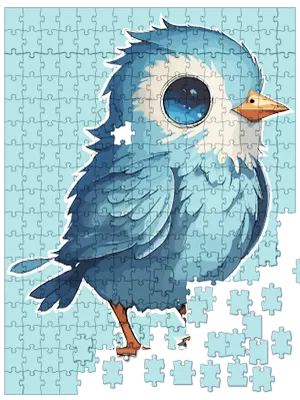Anyone who finishes writing a novel deserves a round of applause just for getting to the end. Whether you're a first time writer or an experienced author, getting stuck in the middle of you novel is a common experience. Having worked with more authors than we can count, we share our best tips to keep motivated and finish your book.

Writing a novel is hard work
Yes, writing is fun; it's a creative activity that exercises both the intellect, the imagination, and the emotions. Given that it is, as Neil Gaiman rather tritely puts it, “making things up and writing them down”, you'd think it would be easy. But from many conversations we've had with writers — and we work with amazing self-published writers every day — it can be a real problem working out how to stay motivated to write a novel.
On occasion it might be that the novel itself has structural issues – plotting, pacing, story arcs – that need attention, or that you've taken a “wrong turn” somewhere in the characterization or some other craft-related aspect of the story. But often, your outline is solid, your plot well-designed, your characterization effective, and everything seems in order. But still, you feel a deep internal block; frequently, anxiety but about what exactly, you can't say. It goes against all your reasons, but somehow, you feel as if you just can't carry on. It's as if everything you've written so far and everything you try to write now is just a jumble of horrible words that read like the early efforts of a first grader rather than the expert, best-selling novelist you aspire to be.
One of the difficulties is simple frustration; the realization that motivation doesn't necessarily come easily. Writing a novel is a creative activity, as we said. It's an exciting and inspiring endeavor and is typically embarked upon as a free choice on the part of the writer. No-one's making you do it! And yet, at a certain point, it becomes so hard to continue that many would-be novelists abandon hope — and their manuscripts — and give up. Each novelist will have their own story to tell in this regard.
5 Top Tips for How to Stay Motivated to Write a Novel
But let's just take a step back. Forget about what Niel Gaiman says – or any other already successful novelist who feels they can afford to be glib – there's no doubt that writing a novel is a huge undertaking. Let's be clear: it's hard work. Often, very hard work.
Just physically, mechanically, writing 200,000, 100,000, 60,000, or even just 50,000 words can be a daunting task. In that context, and given the practical complexities of plot, character development, grammar and syntax, internal and external character arcs, foreshadowing, metaphor and symbolism, and all the other many layers and facets that you must consider, work out, and weave seamlessly together to write a novel, it's hardly surprising that keeping motivated to the end proves challenging! It's exhausting stuff. And not only can it be surprisingly challenging at a physical level – writers frequently complain of tiredness, aching backs, strained wrists, and weary eyes but, unlike more physically demanding jobs such as bricklaying, say, or farming, it's intellectually and emotionally demanding, too.
So, there's a lot going on “under the surface” that can make writing a novel extremely hard work indeed. Exhausting, even. We've known authors burst into tears when their work is finally completed and ready for the printing press. Not because they are “highly strung” artistic types; but from the sheer release after all the strain they've been through to get to the end and complete such an onerous task.
But we won't waste time in psychoanalysis. We're not going to look at the psychological and emotional causes of motivational difficulties, or what is commonly termed “writer's block,” or any of that. In any case, while there may be something in common between writers, each will have their own reasons for feeling unable to continue, and those reasons may vary from time to time. If you want help with that, we suggest you talk to your therapist or your counselor, who will be better qualified to help you than a printing expert, however experienced!
What we can do, however, is give you five top tips on how to stay motivated to write a novel culled from our own experience working with many successful professional writers over the course of the last 30 years and counting. Enough preamble. Let's plunge right in and deliver at least some of the help you need.
Tip 1: Don't be critical writing the first draft
We mentioned builders before, right? There's a huge gap between an architect's plans and a finished, functional building, completed to the last detail, decorated and furnished and ready for the inhabitants to move in. Likewise, there's always a vast canyon of time and effort between your perfect plot and story outline and a finished manuscript that's been worked and polished until it's ready to go to press and find its way into the hands of eager readers.
Always remember that good writing is an iterative process. No novel, or any writing for that matter, comes out just right the first time. You will have plenty of opportunities to come back and rewrite, fix, and polish your piece before anyone else gets to see it. So, relax. Allow yourself to write freely, and enjoy the process to the full. Even if you think you're writing badly, that's okay. Write badly, but get to the end. Our experience, and the experience of most of our authors, is that the writing's never as bad as you think and that, once you come back to it with the benefit of a little emotional distance, it's easier to fix than it was to get right the first time round.
So, whatever else you do, don't be self-critical on the first draft. Just get it done. Don't worry about using clichés, tired metaphors, rambling dialogue, and all the rest. Don't even worry too much about plot holes and character inconsistencies or anything else. Just get the story down. Even write several alternative versions for a single scene. Write in any order you like. Get your ideas down and have fun generating material. Finish the book. Honestly, you can do more with a cruddy but complete manuscript than you can with a pile of black pages. You can't edit and improve a blank page!
You absolutely must lock your inner critic in the basement while you are getting through the first draft. Once you have that first draft, you'll have a clearer idea of what will and won't work for your story. Your inner critic can kill your motivation in the early stages. Ignore that nagging, perfectionist voice, and just write.
Tip 2: Plan your novel before you start writing
For some, this is a controversial area. It's commonly said writers can be divided into two kinds: “planners” and “pantsers”. If you're not already familiar with the terms, a planner is one who writes a detailed outline of the whole story from start to finish before embarking on the actual writing; a pantser is one who has an initial idea or creative spark and starts writing straightaway to see where the Muse might lead them (namely, they “write by the seat of their pants.”) if you research famous and successful writers of any era, you'll find both kinds. But, and we think this is an important “but”, you'll also find that most successful writers plan ahead. So, while you might later discover that you are exceptional, one of the few, assume to begin with that you are like most other successful writers, and plan your book in as much detail as you can before you start writing.
From talking to our authors, both methods can work, but “pantsers” are more likely to encounter motivational problems around halfway through the novel. If you're reading this now because you're struggling with the saggy, meandering middle of your novel and you haven't got an outline, that's probably the reason it's all falling apart and you've lost grip on your motivation. Our best advice is to go back to “square one”, in this case, and work out an entire outline and then come back to the writing.
Planning and outlining are not about shackling yourself to a rigid form. It's about solving all the common problems associated with the structural elements of a novel, as far as possible, before embarking on the more creative aspects of the writing itself. It just makes life easier.
No outline is ever set in stone. But a good outline provides something to fall back on when inspiration falters. There's nothing wrong with knowing where you're going when you set out on a journey. When you go hiking, it seems sensible to take a map, right?
Having an outline can help you maintain your motivation to finish your novel, because you can take interesting diversions and explore different ways of getting there without having the anxiety that you might lose sight of your destination. And when inspiration fails you (which it frequently will) you can turn to your outline to tell you what to do next, and soldier on.
You'll be amazed how much easier it is to stay motivated to write a novel if you already know what's going to happen next and why so that you can concentrate on the fun aspect of writing it. There's a lot to be said for planning. If anyone tells you planning or outlining will in some way stifle your creativity, they are dead wrong.
Tip 3: Refill the well of creativity as you go
To go back to our building analogy, if you want to complete a house, you need both a steady supply of bricks and mortar and also periods of rest and recuperation between one day's work and another. When you're writing a novel, you'll probably be pouring your heart and soul into every step of the process. And you may well be putting in all this effort on top of the effort you're already plowing into your day job. So, there's every chance that you'll be wringing your imagination dry alongside burning the midnight oil (or getting up before the larks to work on your novel before the kids get up, the school runs, and then the working day demands all your attention). All this outpouring can leave you physically and imaginatively exhausted. Talking to our writers, it's clear that exhaustion is often one of the key causes of loss of motivation to write a novel.
For this reason, it's incredibly important to use your non-writing time to recharge and refuel your energy and your imaginative fire. Physical exercise to oxygenate the blood and maintain the quality of your thinking is an absolute must. A good walk is the mother of good thought. Many a knotty plot problem will unravel itself during a brisk walk in the local park.
And make sure, when writing a novel, that you are also reading a great deal. Read or reread your favorite authors, works which truly move you and inspire you, and any writing which you greatly admire. Get out to an art gallery or go to a concert. Go to the movies, and binge on a box set. Feed your imagination. Feed your emotions. If you don't, you'll lose your motivation. If you do, you'll be well-stocked and inspired right to the end. Exhausting yourself in te effort to write a book often comes from unrealistic expectations about what's involved and a lack of patience. It takes time to write a novel. To stay motivated to write a novel you must give yourself that time, and include time to rest, recharge, and recuperate your energies.
Tip 4: Keep sight of your goal
No one starts writing a novel on a whim. There's always a reason. And that reason is usually a compelling one. Whether it's because you have something you're burning to say or because it's what you do to pay the bills, you should always remind yourself of why you started this process and why it's so important to finish it. Losing sight of your end goal can reduce your motivation to keep going. Write out a sentence which sums up what it is that inspired you to get started in the first place, open up a picture on your desktop, or just tell yourself mentally what it was every time you started to write. Never lose sight of the goal.
Tip 5: Work to a deadline
Right at the top of this post, we said that no-one is making you write your novel. It's a free choice, a self-selected, voluntary activity. But that can often be part of the problem and one of the reasons why you're wondering how to stay motivated to write a novel that you've opted to do without any coercion on the part of others. If you look at all the situations in which you are most productive even when you don't feel like doing something, you'll see that most of them are situations in which you are obliged to complete the work whether you like it or not: work deadlines, family obligations, legal requirements, and so on. One of the difficulties you face when writing a novel is that it's a lot of hard work that you don't have to do. And most of us, quite understandably, have trained ourselves not to do unnecessary work, especially if it's at times gruelingly hard!
So, if you're going to work for yourself and get that novel done, you'll need to be your own boss. Give yourself a deadline. Make yourself accountable to others. Professional self-publishing and traditionally published authors know this well. Having a deadline, even if it's self-imposed, can push you to keep going even when you feel tired and demotivated. Better yet if you've declared that deadline to the world. Post it on all your social media. Tell your friends and work colleagues. Make it mortally embarrassing not to meet your deadline. Make a promise on the date at which you'll complete your manuscript and then stick to it.
It's no coincidence that many successful novelists have a background in journalism or copywriting. The industry is unforgiving when it comes to deadlines. You get your copy in on time or you never work again. If you have an agent breathing down your neck or an annoyed email from an editor, that's pretty motivating!
If you intend to build a career as an independent author, that works, too. Because once you get going, you'll have a fan base and probably a mailing list, however small at the outset. Mail out to your fans telling them when the next book they're all waiting for will be published. Deadlines and accountability are a real solution, if sometimes more of a stick than a carrot, to the problem of how to stay motivated to write a novel.
Only one person can write your novel...
…and that's you. And you're also the only person who can stop you writing it. So there you have it. You may have other things that work for you, but these are pretty universally applicable to any writer, newbie or experienced, and can really help with motivation when the Muse divorces you, the flower of inspiration withers and dies, and the well of creativity has run dry.
When you get to the end…talk to us. We're here to help!
When you've finished your novel and it's been edited, proofread, and polished, get in touch. If you want to self-publish, talk to us about the advantages we can offer you as an independent creative in terms of a beautiful product and cost-effective printing and shipping. We have 30 years of experience in the industry working with authors just like you. We also enjoy a worldwide reputation for excellence based on our expertise, our state-of-the-art printing facilities, our unbeatable prices and, perhaps above all, our sincere dedication to personalized customer service. We'd be delighted to play our small part in your success. Get in touch as soon as you're ready, either for an informal chat through the options or a no-obligation quote if you're nearly ready to go to press. We're here for you. Just shoot us an email at [email protected] or just call us at +1 951 866 3971 and we'll be delighted to do all we can to help you.










